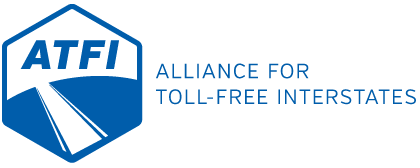An Obama administration proposal to let states impose interstate tolls for transportation funding will incur opposition but could replace shrinking federal highway dollars, lawmakers on both sides of the issue say.
“My reaction was that it's a little late,” said Sen. John Wozniak, D-Johnstown, minority chair of the Senate Transportation Committee, who supported a federally rejected state plan to collect tolls on Interstate 80. “Not tolling I-80 put us in a debacle. It's worth exploring, but I don't see it in the near future.
“Even if it passed Congress, there would be pushback in the states.”
The president's announcement this week was part of a four-year, $302 billion transportation plan he sent to Congress to try to generate funding to repair aging infrastructure. The Highway Trust Fund — funded mainly by an 18.4-cent-per-gallon gasoline tax — is expected to run dry by late August. The tax last increased in 1993. Since then, construction costs and fuel efficiency increased steadily.
“I think it's a great idea. States should have the freedom to decide how they want to pay for things,” said Allen Biehler, former PennDOT secretary under Gov. Ed Rendell, who pushed for tolling I-80. “One of the concerns in the past was that we were sort of cherry-picking I-80. Now they can think of a more systematic way of doing it: tolling the whole system instead of a single corridor.”
“I think it would be a hard sell to a lot of legislators who voted for the gas tax” last year, said Rep. Daryl Metcalfe, R-Cranberry, who voted against that tax.
The Legislature in 2007 passed Act 44 that, in part, would toll I-80, but the Federal Highway Administration denied the request in 2010. States are barred from tolling federal interstates unless they use the money to add lanes or otherwise increase capacity, or if the highways had tolls dating to before the federal interstate highway program began in 1956, such as the Pennsylvania Turnpike.
Tolling I-80 was expected to generate about $77.5 billion from 2011 to 2057. In the first five years, it was expected to raise $470 million to $580 million annually, turnpike spokesman Carl DeFebo said.
Regrouping after the I-80 defeat, state lawmakers last year passed a $2.3 billion transportation funding bill, Act 89, that hikes the wholesale gas tax and vehicle-related fees to fix roads and bridges.
PennDOT officials said the state gets about $1.5 billion a year in federal highway money; without it, the benefit of Act 89 will be undercut.
“Gov. (Tom) Corbett recognizes the need for funding to improve transportation. That's why he (signed) Act 89,” said spokesman Steve Chizmar. “If tolling was an option, it could be yet another tool for states to meet future transportation needs.”
The plan has its hurdles. Groups such as the Alliance for Toll-Free Interstates say tolling is flawed.
“The president's plan is shirking the federal government's responsibility to provide funding. It's passing the buck to the states,” said spokesman Miles Morin. “If you want the most bang for the buck, tolling interstates is not the way to do it.”
Morin said his group does not advocate raising the gasoline tax but said administration of the tax eats up about 1 percent of revenue compared with up to 30 percent in administrative costs for toll collections.
Many state lawmakers in the I-80 corridor oppose tolling that road, saying it's unfair.
“I can tell you that it was and continues to be unappealing to my constituents — for the person who travels for work, for senior citizens and for businesses,” said Rep. Mark Longietti, D-Mercer County, where I-80 begins in Pennsylvania. “Polling indicates the public at-large opposes tolling existing highways.”
President Obama's plan includes pumping about $150 billion into transportation programs beyond money raised from fuel taxes. The extra spending would be paid for by changes to business taxes, including a proposal to close corporate loopholes.
Mark Compton, turnpike CEO, said the plan would have little impact on the turnpike.
“Getting to a mileage-based or user fee is the future where this revenue has to come from,” Compton said.
Bobby Kerlik is a staff writer for Trib Total Media.

